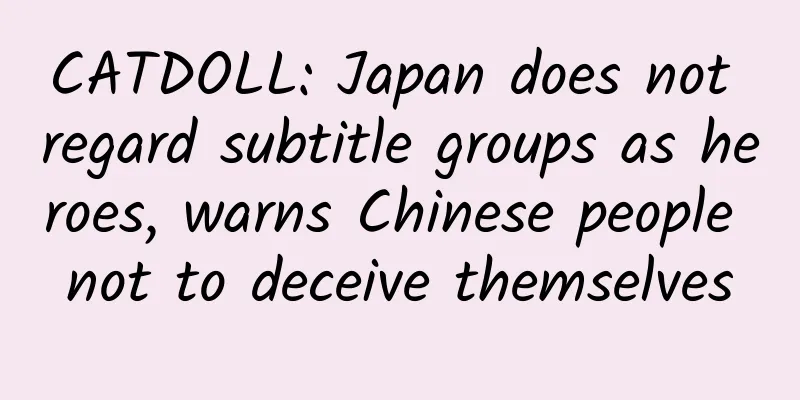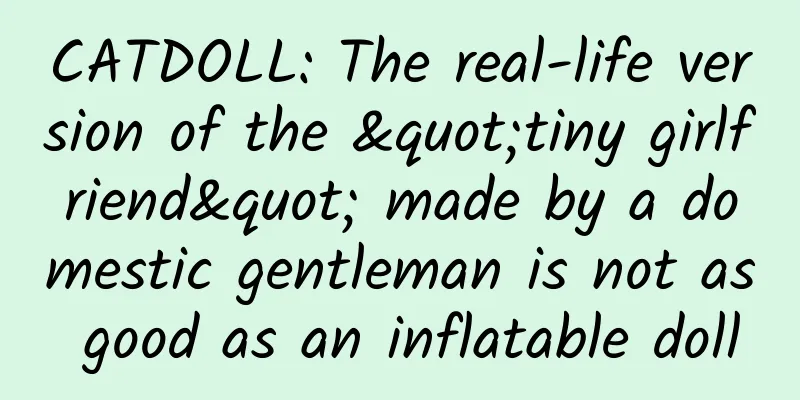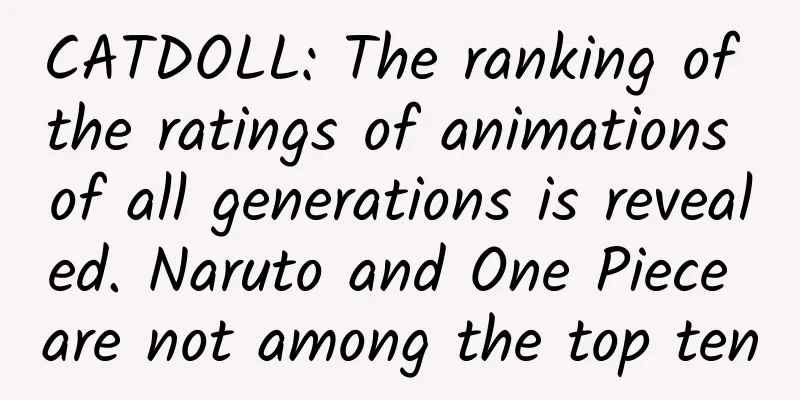CATDOLL: Japan does not regard subtitle groups as heroes, warns Chinese people not to deceive themselves

|
Recently, there have been frequent reports of Japanese police arresting members of Chinese subtitle groups, which has also sounded the alarm for copyright awareness. Most people in China still sympathize with the arrest of subtitle group members. After all, if you want to watch anime works in China, you have to rely on subtitle groups. Of course, there are also some people who strongly support subtitle groups, and some even organize marches in support of subtitle groups. But no matter what, as the copyright environment continues to expand, the existence of subtitle groups is indeed becoming more and more embarrassing. Today (November 3), the Nikkei Chinese website published an article about Chinese subtitle groups from a Japanese perspective. The article pointed out that "subtitle groups cannot be regarded as heroes. Rampant plagiarism will not harm Japan, Europe and the United States. Only China itself will be hurt." Although the author still showed some extreme views on some issues in the article, we do need to read this article carefully. Everyone is welcome to express their own opinions after reading it. Excerpt from "Can't Treat Subtitle Groups as Heroes": Not long ago, the Japanese police arrested a Chinese subtitle group member for publishing Japanese anime with Chinese subtitles without paying copyright fees. Attracted by the charm of Japanese anime, the Chinese subtitle group has been providing Chinese subtitles for free to spread the wonderfulness of Japanese anime in the Chinese-speaking world. Without their activities, Japanese anime would probably not be so highly regarded in the Chinese-speaking world. The subtitle group's love for anime and its enthusiasm for popularizing anime are worthy of praise. A march was also held in Hong Kong to demand the release of the arrested Chinese subtitle group members. Although the author also sympathizes with the subtitle group, he does not agree with its behavior. In ancient times, intellectual property rights were basically free, and civilization developed through mutual learning. In a sense, it can be said that human development is a series of plagiarism. However, intellectual property rights that have always been free have gradually become paid after entering modern times. This is because humans have noticed that rampant plagiarism will hinder the development of civilization. In ancient times, humans used their free time to engage in some creative activities as hobbies and interests. Their main jobs were agriculture, business, officials or clergy, and they obtained what they needed for life through their main jobs. But in modern times, many professions emerged that wanted to survive solely through creative activities, such as painters, musicians, scientists, and writers. They spent all their time on creative activities, constantly creating great inventions and works of art. Creative activities are no longer hobbies and interests, but have become "main jobs" that require long hours and unremitting efforts. Those who only engage in creative activities must ensure income from their main jobs in order to survive. They must earn income by selling their inventions, new technologies, and works of art. At this time, intellectual property protection is necessary. The government also realized that in order to revitalize the economy, science and culture, it is necessary to vigorously protect intellectual property, so it has strengthened management. Knowing that scientific and technological inventions, composing, painting and writing can make money, many capable young people will challenge creative work. The more creative work there is, the more civilization in this country and region can develop. On the contrary, in countries and regions where plagiarism is allowed, it is impossible to earn income through creative activities. Such places will not produce creative achievements and civilization will not develop. Japan has also been protecting intellectual property rights, but people engaged in creative production activities are also dissatisfied. Shuji Nakamura won the Nobel Prize in Physics in 2014 for his work on blue light-emitting diodes, which were put into practical use by a small Japanese company. However, Nakamura is not Japanese. He was dissatisfied with not being able to receive a generous reward despite completing a global invention, so he immigrated to the United States. When he won the Nobel Prize, Nakamura was already an American. The rewards for patents in Japan are not as generous as those in the United States, which has led to a flow of talent to the United States. Among Chinese anime fans, we often hear lamentations such as "Why is the level of Chinese anime so low?", "Why are the voice actors so poor?", and "Why are the scripts so boring?". There are many reasons, but the main reason is that there are relatively few people who aspire to become cartoonists, voice actors, and screenwriters. Because these professions are low-paid and cannot win respect. To revitalize China's anime industry, we must create an environment where they can work with peace of mind. The first thing to do is to immediately stop plagiarizing and buying pirated audio-visual products, and not block the creators' income channels. "Japan also copied Chinese culture and technology before, so we have to copy Japan too." Although I don't know whether this is self-deception or self-satisfaction, this kind of sophistry may be forgiven when China's per capita GDP was about 1,000 US dollars. Because Japan's patent fees and copyright fees are relatively high, ordinary Chinese consumers cannot afford it. But now China's per capita GDP has reached 8,000 US dollars, which has increased to about a quarter of Japan's. At this level, it should be able to pay various royalties for intellectual property rights, so there is no need to talk about these fallacies. The time has come for China to strictly protect intellectual property rights, regardless of the country of origin. If China wants to move from its current middle-income status to the ranks of truly high-income and developed countries, it must transform into a society where people engaged in creative work can be fully active and high value-added industries can be continuously created. If it is a society that can fully protect intellectual property rights, the talented Chinese subtitle group members who were arrested this time should also be able to receive adequate compensation as subtitle translators. I hope that China can become a society where their abilities and enthusiasm can promote the development of Chinese animation. If plagiarism is rampant, China will remain a giant developing country, no, it will remain a real estate giant and will not be able to move forward. Rampant plagiarism will not hurt Japan, Europe and the United States, but only China itself. Original link |
<<: CATDOLL: The author of "Bleach" COS Nirvana God returns to apologize to fans
Recommend
CATDOLL: The preview image of the sixth episode of "unHappy" animation is released, and the girls are heading towards the mountains
The preview image of the sixth episode of the new...
CATDOLL: Dragon Ball Super's ratings have dropped significantly, and Gohan may have to take the blame
The latest TV animation of "One Piece" ...
CATDOLL: The movie "I Want to Shout from the Bottom of My Heart" has a cumulative box office of over 800 million yen
The theatrical version of "I Want to Shout f...
CATDOLL: The first PV of the new animation of "Osomatsu" is released, and Endo Aya plays the heroine
To commemorate the 80th anniversary of Fujio Akat...
CATDOLL: April new show "Clockwork Planet" PV released, battle dolls are coming
The light novel-adapted animation "Clockwork...
CATDOLL: Anime Starry Sky Evening News: The super scary lolita in the animation "The Saga of Little Girls" will appear in the movie "Killing Organ" to be released in February 2017
Good evening, everyone. It's time to review a...
CATDOLL: Anime Starry Sky Evening News: "Rozen Maiden" New Serial "Gintama" Chapter 576
Good evening, everyone. It's time to review t...
CATDOLL: "Justice League Action" animation promotional image released and will be broadcast this fall
The new TV animation poster of "Justice Leag...
CATDOLL: Popular actress Jiyoung supports the movie version of "Detective Conan: Sunflowers of Inferno"
"Detective Conan" is well-known in the ...
CATDOLL: "The General of the Storm" launches 3D theatrical animation promotional video
The TV animation "The Storm Riders" was...
CATDOLL: Netizens complained that the ending of the animation "When a Girl Meets a Bear" destroyed people's worldview and only ruined the character development?
It is now late June, and most of the April series...
CATDOLL: The main visual image of the new July show "First Love Monster" is released, and the elementary school student is amazing
The official release of the main visual of the ne...
CATDOLL: The new chapter of the manga "Rurouni Kenshin" will be launched in the spring of 2017
Many anime fans are familiar with Nobuhiro Watsuk...
CATDOLL: The boss of Dragon Ball Super’s Future Trunks arc in June is the evil Goku?!
The new animation of the Dragon Ball series, Drag...
CATDOLL: "Kamen Rider Ghost" Episode 31 Preview: The Strongest Suit Actor Second Uncle Becomes a Cadre
The plot trailer for episode 31 of the hit specia...









